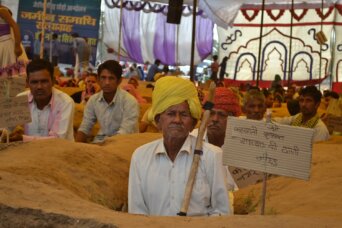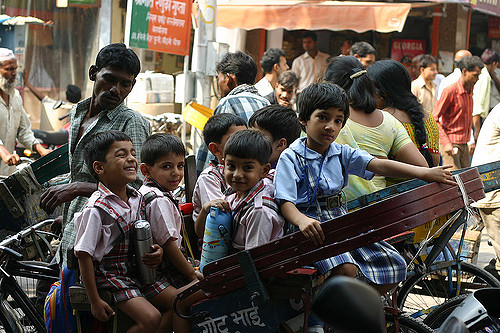- About
- Topics
- Picks
- Audio
- Story
- In-Depth
- Opinion
- News
- Donate
- Signup for our newsletterOur Editors' Best Picks.Send
Read, Debate: Engage.
| topic: | Food Security |
|---|---|
| located: | India |
| editor: | Tish Sanghera |
They left their villages and camped out on the outskirts of Delhi for over a year. They drove their tractors through the streets of the capital in protest. They were attacked by water cannons and teargas. They marched relentlessly, even as some were even run over by a government minister’s son. Now it seems that it was all worth it: this week Prime Minister Modi capitulated to the demands of India’s farmers, repealing a set of three controversial new farm laws that they say would have destroyed their livelihoods.
The decision came as a surprise and marks a considerable victory for the farmers who had been labelled ‘terrorists’, Sikh speratists and vilified by pro-government media. Many analysts have commented that the U-turn comes ahead of an important state election in Uttar Pradesh, India’s most populous state and a key political battleground with a large rural population.
Though farmers have been celebrating their win, they say the battle is not over. Farmers maintain that the government must guarantee that staple crops, like wheat and rice, will continue to receive a minimum support price (MSP), the only way to avoid financial ruin. In fact, they have now expanded their demands to include a request for MSPs for all crops too. This week thousands of farmers showed up at the main protest site to mark the first-year anniversary of the start of the protests, indicating their continued commitment to the struggle.
Over 40 percent of people in India are employed in farming, earning an average of 10,500 INR ($139). In 2016, PM Modi promised to double farmers’ incomes by 2022, a claim which even before the economic fallout of the pandemic, was doubtful. Indeed, Modi’s backslide leaves unresolved the issue of farmers' livelihoods, and the complex web of farm subsidies and price supports that comprise the agricultural industry in India that critics say the government cannot afford.
The current status quo of growing water-intensive crops like rice and wheat in northern India is also incredibly harmful to the environment, and has induced drought conditions for millions of people. Though farmers may have won this battle, there are plenty more to tackle.
What is certain however is that the outcome of the farmer’s protest, which attracted international attention and support from the likes of climate activist Greta Thunberg and pop star Rihanna, is a rare win for dissenting voices and public protest in India.
It has shown that organised political movements and civil disturbance can still be effective against a hardline government that tries to ram through laws without any parliamentary debate. Providing a counter to the tough, indomitable image of the ruling Bharatiya Janta Party, it may have (at least for a while) made the government think twice about using identity politics to alienate large parts of its population. The result is a win for democracy, but a band-aid for India which is sliding fast towards authoritarianism.
Image by Pandit Amandeep

